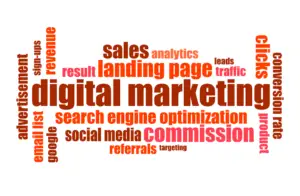There are so many effects of social media.
Social media connects people, It allows them to share their happy, sad, and successful moments.
It simply brings people together.
It is hard to find someone who is not on their phone or spending time online these days.
People are so hooked up to their phones or computers.
I remember the days when we had to connect the phone cable to the old big pc, and we would wait and wait to hear the connecting sound.
With the emerging of laptops and now smartphones everyone is always connected.
But are people really connecting?
Social media indeed has changed the world tremendously.
It has become easier to stay in touch anywhere and at any time.
For example, if you had to travel, rest assured that your family will not forget about you.
If you had to move cities, change jobs, or graduate, you will be able to stay in touch with your mates.
You can still call, chat, and even see each other through video calls.
It all sounds great, doesn’t it?
The impacts of social media are truly great, however, there are negative effects of social media that no one talks about.
Negative effects of social media
Unfortunately, there is always a downside to every good thing.
As much as social media has done for us, it has taken from us.
Social media’s negative effects are growing, especially affecting young people.
Social media addiction
No doubt about it, people are growing more and more addiction to social media.
Social media is in every aspect of our lives now.
From the moment we wake up, go to work, eat lunch, till we fall asleep with the phone in hand.
There has not been a direct study about the addiction to social media.
While studies show that the average person spends just over 2 hours on social media a day.
If I look at my phone now, I know I have spent at least 5 hours out of 24 just on my phone.
People feel the need to share everything on social media.
To constantly stay updated on what is happening on social media.
Some people even spend more time on social media at work than actually working.
People are now sharing photos of their morning coffee, afternoon lunch, evening rituals, and their favorite song before bed.
You will often come across people sharing how they feel like “I feel nauseous what should I do?”
Everyone will feel the need to comment.
But we all know what they should do is get off the phone and go see a doctor.
The obsession with sharing every little detail about our lives is an existing growing problem, and with it comes the fear of missing out.
The fear of missing out
According to the “Oxford dictionary“, the fear of missing out or as known “FOMO” is “anxiety that an exciting or interesting event may currently be happening elsewhere, often aroused by posts seen on social media.”
A study about Cyberpsychology, Behavior, and Social Networking found that “FOMO” is a significant factor that leads to social media addiction.
It is basically the anxiety you get from the desire to always stay connected to everything that is happening.
I know I have put myself in situations that I would not normally be in if people had not made it look so pretty on social media.
The crippling thoughts in the back of our heads saying that ‘if everyone seems to be enjoying it, then it must be good for me.‘
Most of the time the truth is people just ‘seem’ to be enjoying it.
Social media and the desire to always be connected and updated to the trends have led people to be living a lie, just for social media.
Social media envy
The negative vibes that get to people when they feel like everyone else is living their best life.
They observe everything, what people share, comment, like, and post.
This results in feeling envious of that person or people because they are having it better than you are.
That leads to negative underlying feelings that people are often not aware of.
They find salvation in “pretending” that they too have it best.
They start to fake posts, situations, pictures, and all of which makes them feel better about themselves.
Seeking validation through their online presence.
What is funny that most people who might feel negative vibes because of the aforementioned; is that these people they are watching are often faking it too.
All for the sake of fitting in the big social media bubble.
Living a lie
The stress and pressure of always looking like we are enjoying are causing some people to be constantly living a lie for social media’s sake.
They want to always look their best, act their best, and even feel their best.
Social media has taught users to always filter their actions, only put their best foot first, hide their problems or imperfections, and do anything to look your best.
How else can we explain the sudden emerging of apps that add filters to our pictures so we can look better for social media?
They always seek validation through likes and comments.
These actions are often derived from the fear of missing out, that others are living a batter moment than they are.
It is a never-ending cycle of people pretending to be doing, living, or simply being something that they are not just to feel like they are fitting in.
It is not envy, it is the feeling social media plants in our minds that other people always have a perfect life that is better than yours.
When in fact, most of our social media profiles are often a perfect persona that we created for ourselves and rarely who we really are.
This causes confusion -still- to people who meet virtually before they meet face to face.
And when they actually get to meet they do not like the true versions of each other which end up causing disappointment, confusion, and low self-esteem.
Have we lost sense of the true purpose of social media?
It is funny to think now that social media was originally created to connect with friends.
Then to connect people everywhere around the world.
Social media was supposed to connect you with everyone you know in no time through a click.
Nowadays we are always connected, but are people really connecting with each other?
While bragging about “ignoring messages” and “ghosting people” has become a norm, it is unfortunate but only fair to say we have lost sense of the true value of “connecting” which is the real purpose of social media.
We have let social media do to us exactly the opposite of what it was meant to.
Meanwhile, it is not a competition of whose life looks better.
It was meant to help us share and celebrate our special moments.
Happiness is contagious when shared in real life.
But on social media, seeing friends or acquaintances happy triggers feelings of bitterness and envy, and you start to wonder why couldn’t I have this?
It is very easy to be manipulated by the negative effects of social media.
Effects of social media on mental health
Even though social media does not always make us feel good, we somehow keep coming back to it in hopes that it will make us feel better.
That is all part of the addiction to social media and validation through it.
We must remember than having more connections on social media does not necessarily mean we have a lot of friends.
It is about who you really connect with which takes actual socializing, unlike the virtual one.
Taking one social media platform, Facebook, for example, a study was made about Facebook’s emotional consequences: Why Facebook causes a decrease in one’s mood?
It showed that Facebook is actually linked to negative feelings and feelings of depression.
It also discusses why people keep coming back to it even though they may or may not know that it is a cause for their depression.
“Facebook is the world’s most popular online social network and used by more than one billion people.
In three studies, we explored the hypothesis that Facebook activity negatively affects people’s emotional state.
A first study shows that the longer people are active on Facebook, the more negative is their mood afterward.
The second study provides causal evidence for this effect by showing that Facebook activity leads to a deterioration of mood compared to two different control conditions.
Furthermore, it was demonstrated that this effect is mediated by a feeling of not having done anything meaningful.
With such negative outcomes for its users, the question arises as to why so many people continue to use Facebook on a daily basis.
A third study suggests that this may be because people commit an affective forecasting error in that they expect to feel better after using Facebook, whereas, in fact, they feel worse.”
The intensity of the online world
What usually causes stress especially more with young people is the intensity of the online world.
Everything seems possible and prettier online.
Users are exposed to all kinds of content without consideration of the side effects of that exposure.
That exposure often leaves footprints in our subconscious.
Where everything seems possible, people start to wonder why don’t I do this?
This leads to constant feelings of pressure and stress and the thought that “I’m not doing anything remarkable or meaningful.”
The desire to fit in the trends is a big factor in a lot of irresponsible actions.
A lot of people admit to having done or participated in an activity that they did not like or feel comfortable doing but they wanted to be included or “post about it.”
There is also the scary part of social media that especially affects children when unsupervised.
For instance, “The Blue Whale Challenge” that has allegedly taken away many young lives.
Cyberbullying

The definition of bullying is when an individual or a group of people with more power, repeatedly and intentionally cause hurt or harm to another person or group of people who feel helpless to respond.
Bullying can continue over time, is often hidden from adults, and will probably continue if no action is taken.
The definition of cyberbullying would be bullying that takes place over digital devices like cell phones, computers, and tablets.
Cyberbullying can occur through SMS, Text, and apps, or online in social media, forums, or gaming where people can view, participate in, or share content.
Cyberbullying includes sending, posting, or sharing negative, harmful, false, or mean content about someone else.
It can include sharing personal or private information about someone else causing embarrassment or humiliation. Some cyberbullying crosses the line into unlawful or criminal behavior.
With the peak of the emergence of social media, most children and teenagers nowadays face cyberbullying and are scared to report it.
UNICEF Egypt has been raising awareness and taking cyberbullying as a serious matter.
Cyberbullying is often motivated by anger, revenge or frustration.
Often, cyberbullying is also sparked by a need for entertainment, attention or simple boredom by having too much time on their hands or little supervision.
Since motives differ, the solutions and suggestions for responses will also differ for each situation as there is no “one size fits all” when cyberbullying is concerned.
They also warned about sings that may indicate a child is a victim of bullying such as drastic changes in their use of devices (sudden increase or decrease.)
If your child begins to avoid several social situations, or displays extreme sadness, loss of interest and isolation of people and activities.
Also, if your child starts to become secretive by hiding their screens when others are near. And sudden shut down of social media accounts or the creation of new ones.
How to stay safe on social media?
The negative effects of social media do not indeed affect everyone.
However, some people are more likely to be affected.
Thus there are things to take into consideration if you want to keep away from the negative vibes of social media.
Security precautions
There are security and privacy precautions that you can abide by to keep yourself and your family safe that people often forget about.
- Keep personal information personal
- Manage your friend list and don’t let random people in your circle
- Adjust privacy and security setting
- Pay attention to Terms and Conditions as they are often tricky
- Supervise children’s online time
- Educate children and teens about cyberbullying
- Educate children and teens on the online appropriate presence
- Take care from pop-ups and unfamiliar links
Summary
Social media is one of the greatest modern-day inventions.
It has helped us connect with each other and brought us closer; thanks to social media we are constantly connected to friends and family around the globe.
Social media also definitely helped build social awareness on many topics.
It has helped us learn new things, make connections, and even kill boredom.
It is indeed a great social experience.
However, with every rose comes a throne, the downsides to social media are increasing.
This is why taking precautions to stay safe and secure from the negative effects of social media is a necessity.
FAQs
What are the Effects of social media?
Social media could have negative effects such as addiction, negative feelings, and cyberbullying. It also has positive effects like raising awareness, connecting people, and socializing.
How do you stay safe on social media?
Keep personal information personal, manage your friend list and don’t let random people in your circle, adjust privacy and security settings, and supervise children’s online time.
How does social media affect mental health?
Social media can cause or increase depression. It also causes anxiety due to the intensity of the online world and affects self-esteem. It has been linked to feelings of loneliness, envy, and desocialization.











